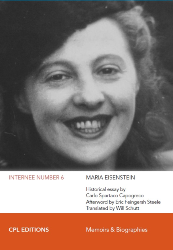Some stories seem so unbelievable that one feels they must be true. Such is the case with Diary of a Black Jewish Messiah, a remarkable chronicle of the elusive sixteenth-century Jewish traveler David Reubeni. The text was completed in 1527, only several decades after the traumatic expulsion of Jews and Muslims from the Iberian Peninsula, a time of cultural transition and messianic fervor.
In his diary, Reubeni makes audacious claims about himself, his travels, and his character. He identifies as a member of an African royal family descended from one of the ten lost tribes of Israel. The diary is written in a matter-of-fact tone that may be intended to give an air of credibility.
The diary opens with Reubeni embarking on a perilous journey to Europe for messianic purposes that are slowly revealed as the narrative progresses. He begins in the land of Kush in Africa, where he dresses as a Muslim sayyid (a descendent of the prophet Muhammed). Reubeni is greeted warmly and generously by nearly everyone he encounters, receiving gifts and offers of hospitality. Thereafter he travels to Egypt, where he is swindled out of his fortune before departing for Europe. He abandons his Islamic garb and settles in Rome. He gains powerful Jewish admirers and, astoundingly, is granted multiple meetings with the Pope. But after repeated double-crossings, Reubeni sails to Portugal.
In Portugal, he reveals the true nature of his mission: to lay the groundwork for the return of the Jews to their ancestral home in the land of Israel, brokered through peaceful diplomatic relations between Islamic and Christian empires. Over time, he garners favor with many conversos (Jews forcibly converted to Christianity). One adopts the name Solomon Molkho and, to Reubeni’s horror, circumcises himself in a fit of messianic expectation. Reubeni is accused of performing Molkho’s circumcision; and because Judaism is formally outlawed, this endangers both the Portuguese conversos and Reubeni, who is accused of attempting to return them to Judaism. Defeated, Reubeni embarks for Italy but gets shipwrecked in Spain, where Jews are allowed only with authorization from the emperor. The diary ends as Reubeni is released after a short imprisonment by the Spanish Inquisition.
In 1530, Reubeni joined forces with the formerly rebuffed Molkho to continue his diplomatic-messianic mission. Ultimately unsuccessful, they were arrested by the Inquisition, with Molkho being burned at the stake in 1532. Reubeni likely met a similar fate years later.
Throughout the diary, Reubeni struggles with avaricious, deceitful, and belligerent servants. Yet he also gives money generously, engages in ascetic practices such as extended fasting, and grants forgiveness to most of the people who have cheated or slandered him.
Diary of a Black Jewish Messiah includes an introduction that situates Reubeni’s diary in its historical context and attempts to verify some aspects of Ruebeni’s fantastic tale. The author examines Reubeni’s geographical and biographical descriptions, using them to investigate whether Reubeni traveled as widely as he claimed.
Contemporary readers may be troubled by the ease with which Reubeni buys and sells slaves and servants, as well as his exoticized descriptions of Africa and the Middle East. Perhaps these wrongs speak all the more to the complexity of this beguiling early modern Jew.
Brian Hillman is an assistant professor in the Department of Philosophy and Religious Studies at Towson University.





